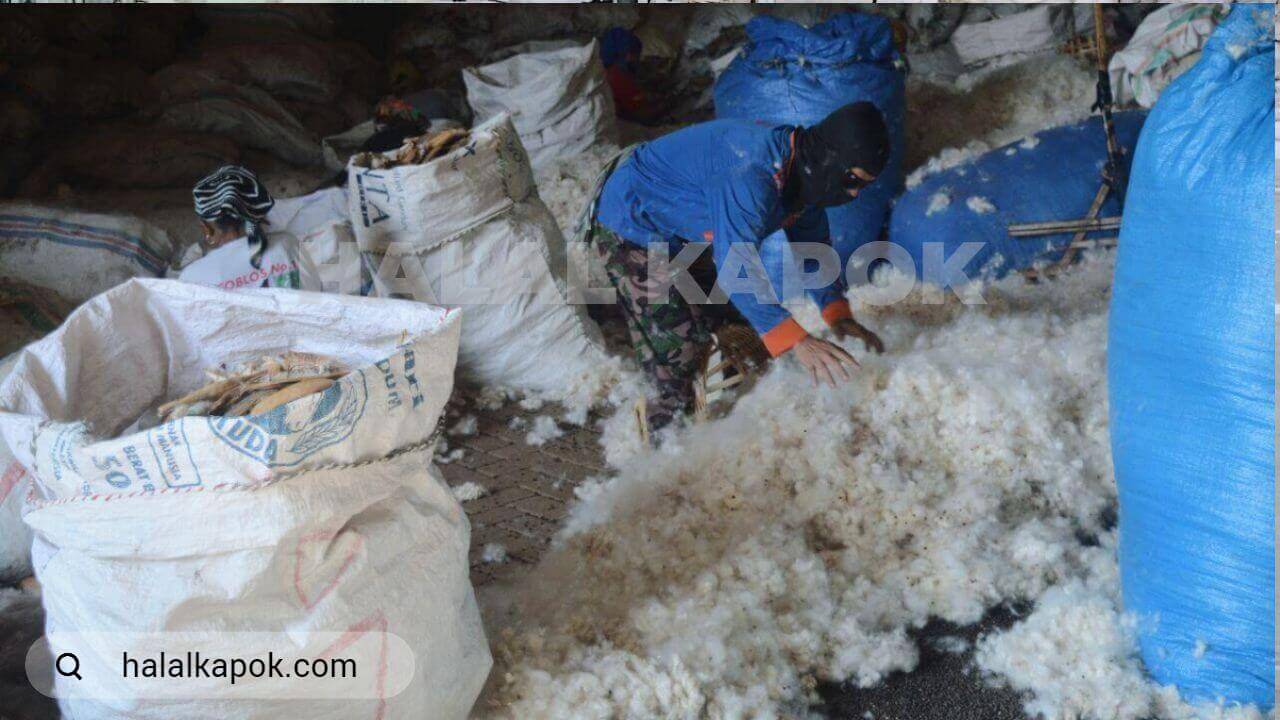Experience The Finest Quality of Indonesian Kapok Fiber and Sustainably Sourced
Supplying across the globe
Our Journey in Kapok Excellence
Our journey as a manufacturer and exporter is driven by a mission to bring the natural advantages of kapok fiber to markets worldwide.
Known for its lightness, softness, and sustainability, kapok fiber is ideal for a range of applications.
As we continue to grow globally, we stay dedicated to providing eco-friendly solutions that benefit both people and the planet, delivering nature’s best to our customers around the world.









How We Made Natural Kapok Fiber

Harvesting Kapok Fruits
Harvesters climb the kapok trees or use long sticks to knock down the ripe pods. Care must be taken to avoid damaging the fibers within.

Drying Kapok Fruits
Drying removes the moisture from the fruit, allowing it to be stored for longer periods. The kapok fruit is considered dry when it loses its moisture, becomes firm, and has a leathery texture

Paring Kapok Fruits
Separating the valuable kapok fibers from the surrounding seeds and other parts. This process is essential for obtaining the lightweight, fluffy, and buoyant fibers

Drying Kapok Fiber
Reducing moisture content and breaking down any remaining fine particles. The drying process can help remove any residual impurities and ensure the fibers are clean and ready for use.

Sorting Kapok Fiber
Sorting kapok fibers is done to select and package only the fine and desirable fibers while eliminating any coarse or low-quality ones. This ensures that the packaged kapok is of high quality.

Packing Kapok Fiber
Efficiently package kapok fiber in a compact manner. This makes them easier to transport and store, saving space and reducing shipping costs. It also helps maintain the quality and integrity of the kapok fibers during transit and storage, ensuring they remain in good condition.
Kapok Seed Based Products

Kapok Oil
Kapok oil is a unique vegetable oil extracted from the seeds of the kapok tree, offering both quality and versatility. With its light color and rich content of unsaturated fatty acids, it is suitable for a wide range of applications. Beyond food use, kapok oil is increasingly valued in cosmetics, soaps, paints, varnishes, and even as a sustainable raw material for biofuels. Its quick drying properties and renewable origin make it an attractive choice for companies seeking natural and eco friendly alternatives. As a byproduct of kapok seed processing, kapok oil adds significant value to the kapok industry and presents exciting opportunities for innovative products. Partnering in kapok oil supply means securing a reliable, natural, and sustainable solution tailored to modern market demands.

Kapok Meal
Kapok meal is a high protein byproduct obtained after extracting oil from kapok seeds. Rich in protein and fiber, it is primarily used as an ingredient in animal feed, particularly for ruminants, poultry, and aquaculture. With proper processing, kapok meal becomes a cost effective alternative to traditional feed sources, supporting healthy growth and performance in livestock. Its availability in bulk and consistent supply makes it an attractive option for feed manufacturers seeking reliable raw materials. As global demand for sustainable and affordable feed ingredients grows, kapok meal offers a competitive advantage for companies looking to optimize feed formulations without compromising quality. By incorporating kapok meal, buyers gain not only nutritional benefits but also a sustainable solution that adds value to their product line and helps reduce dependency on conventional feed ingredients.
EVENTS






